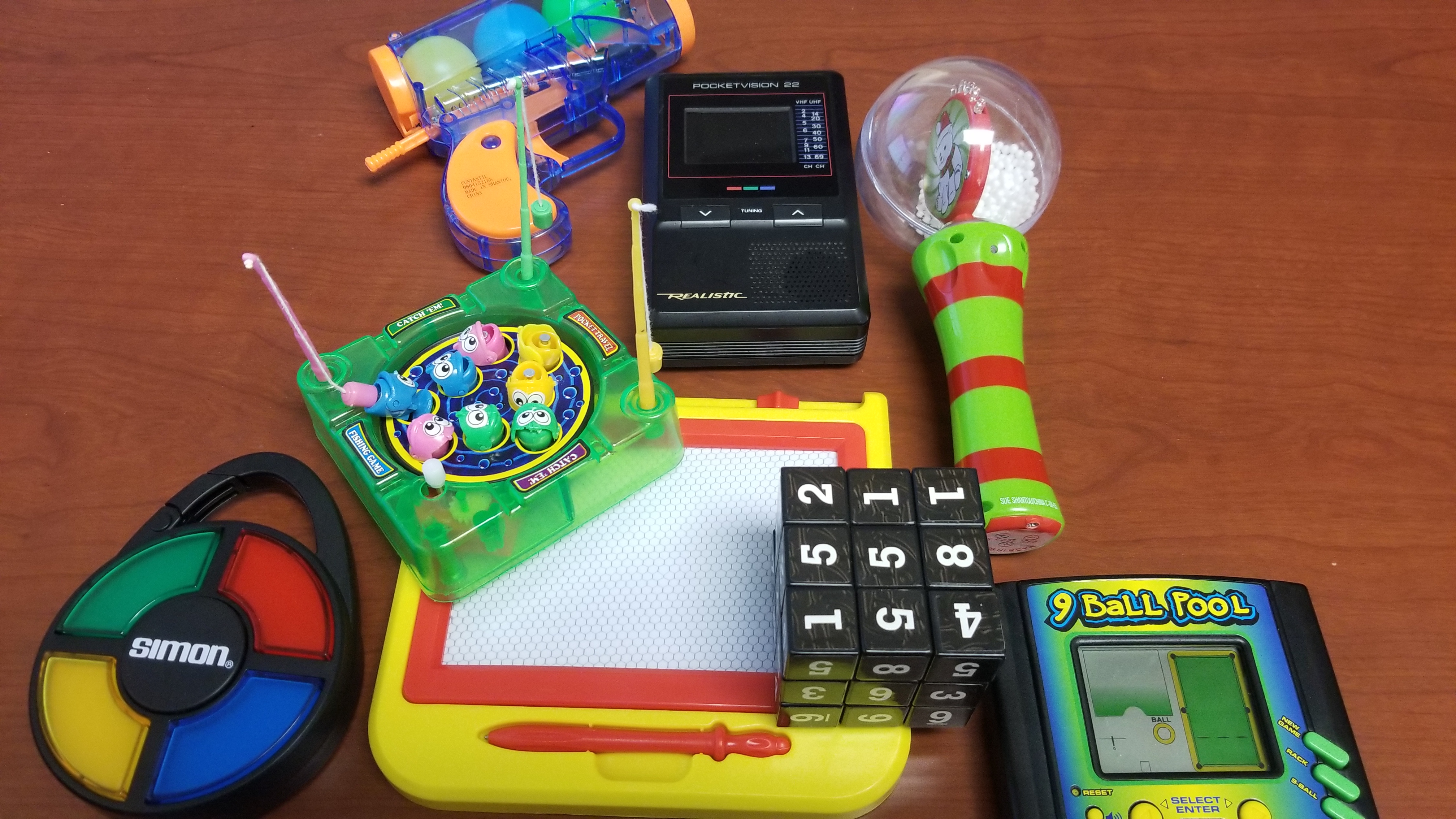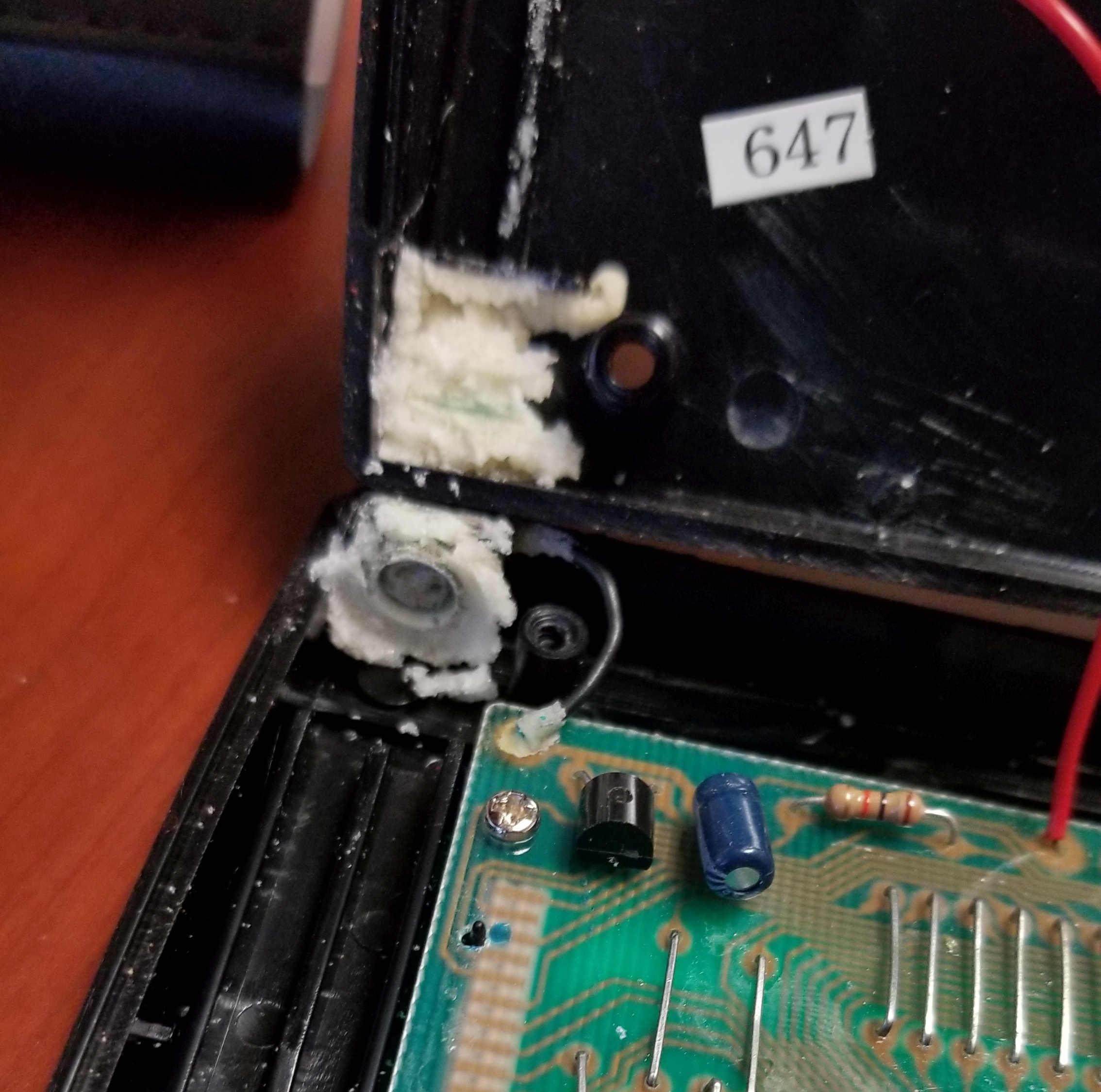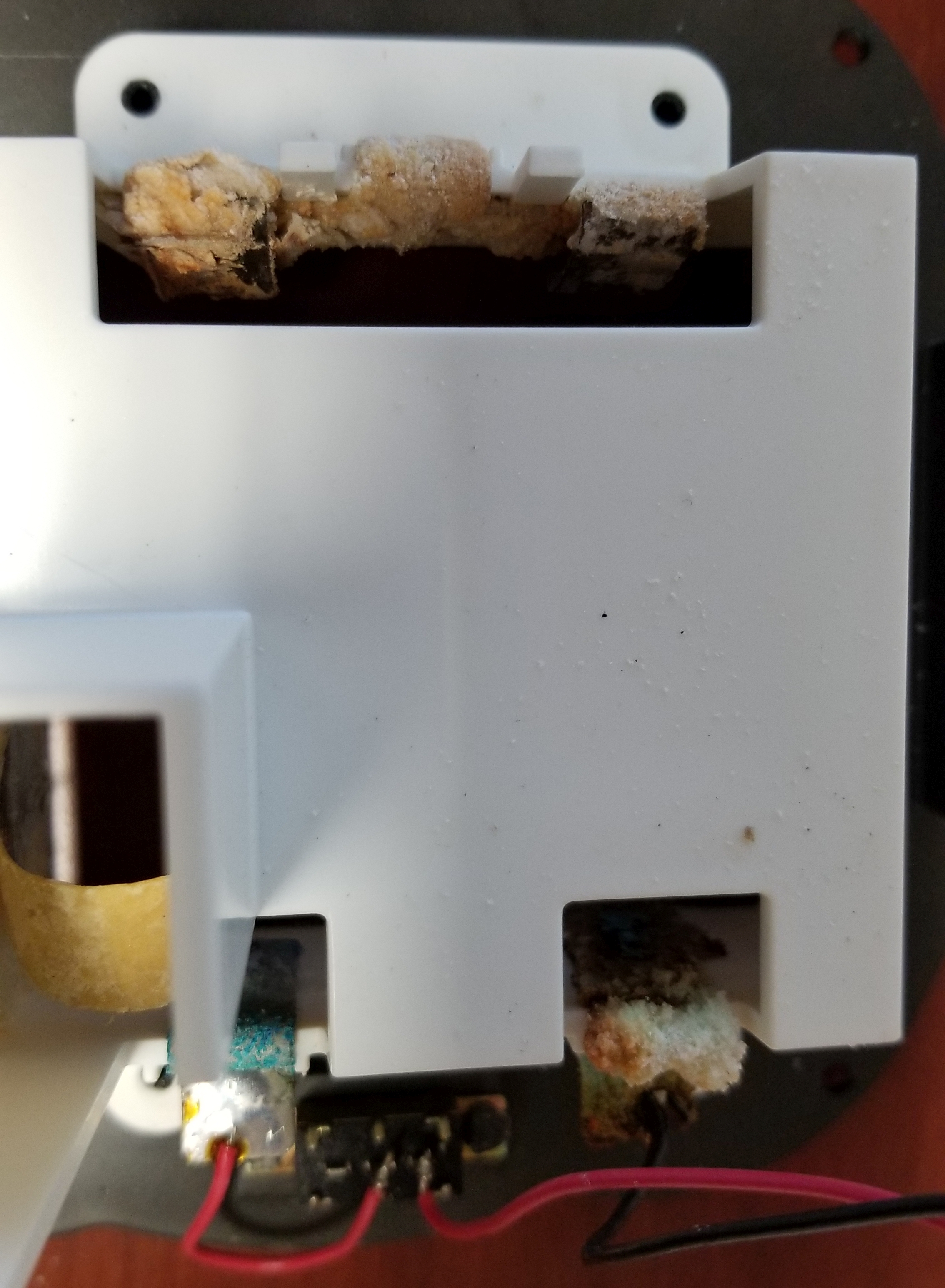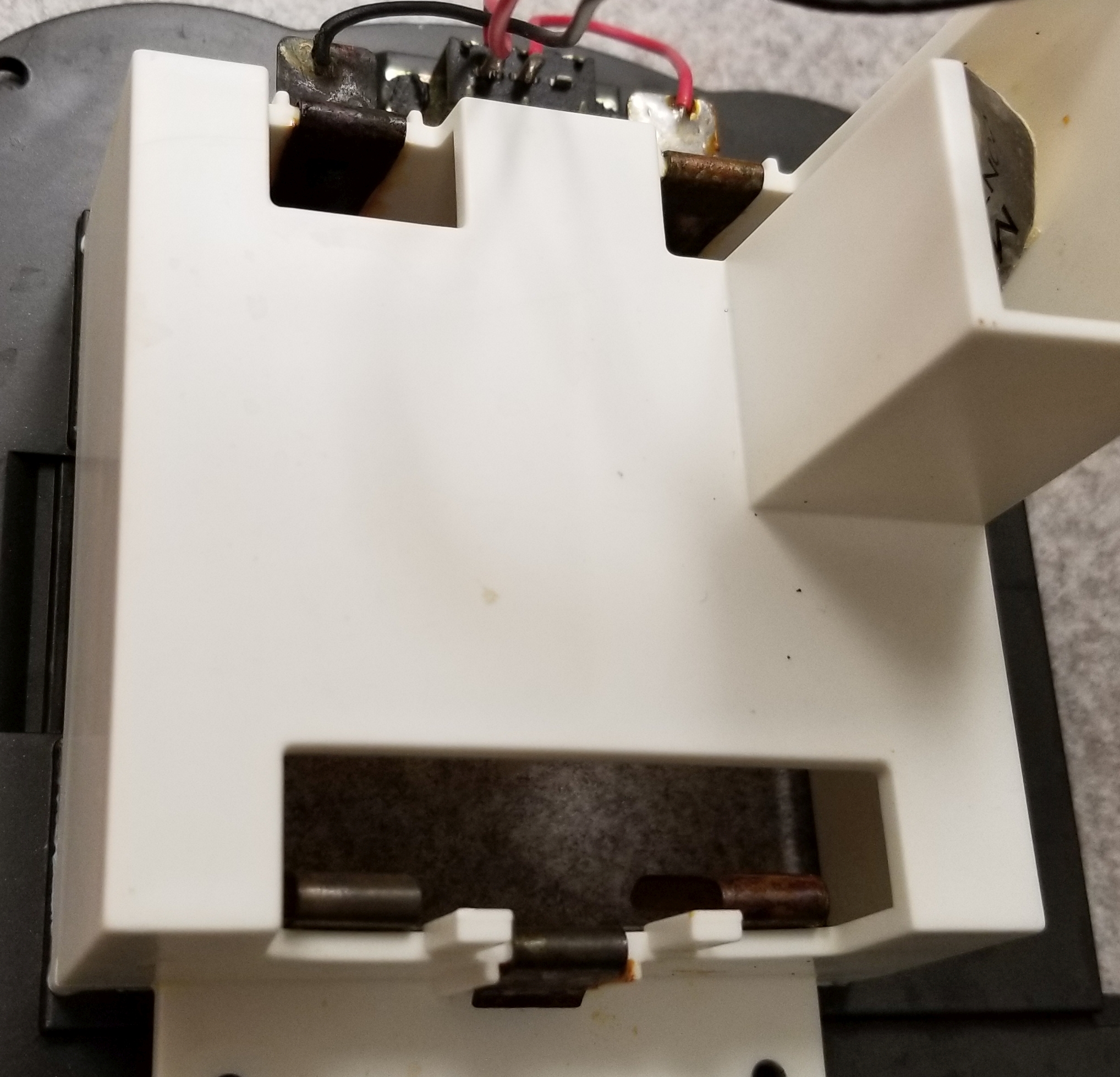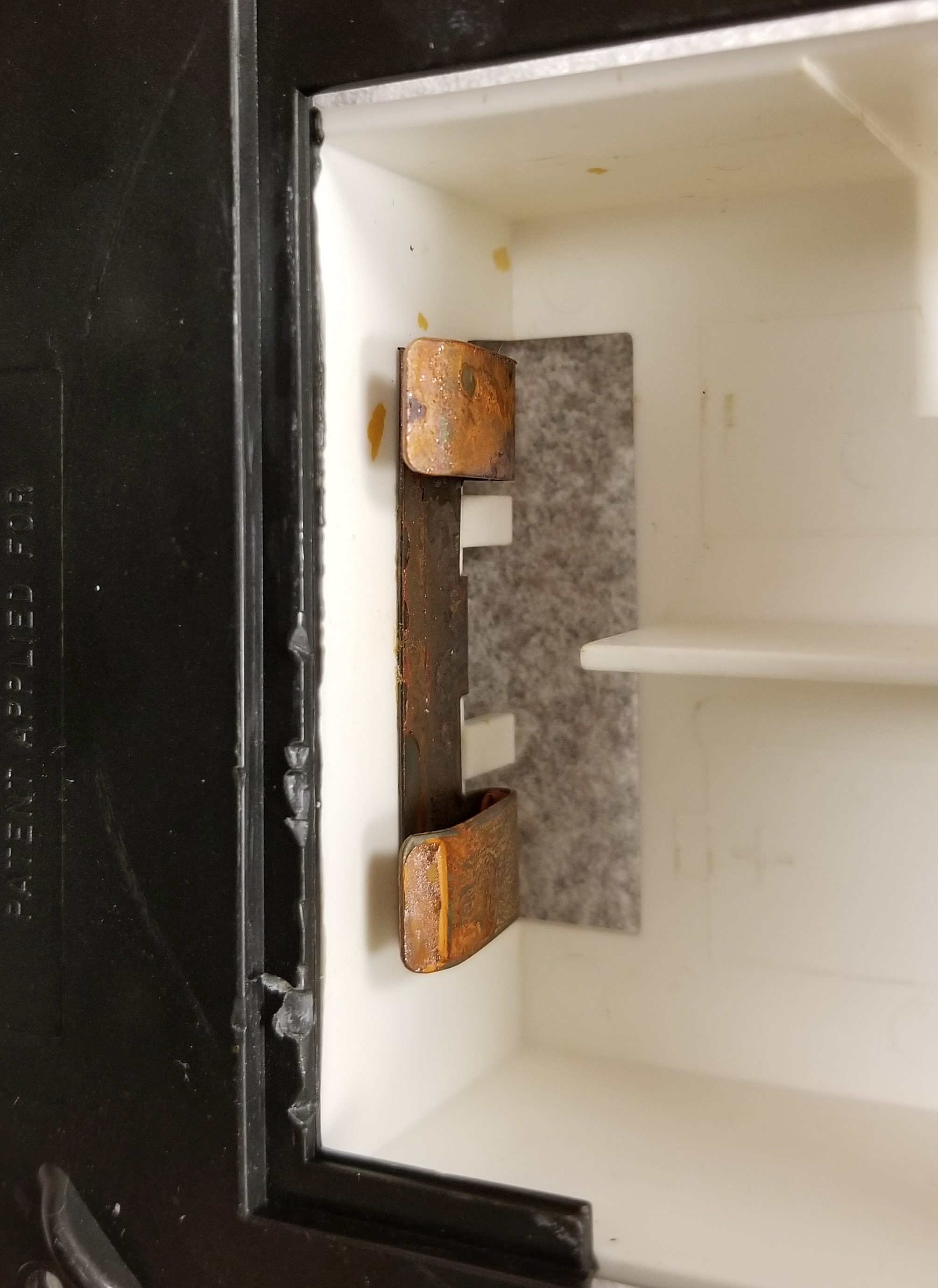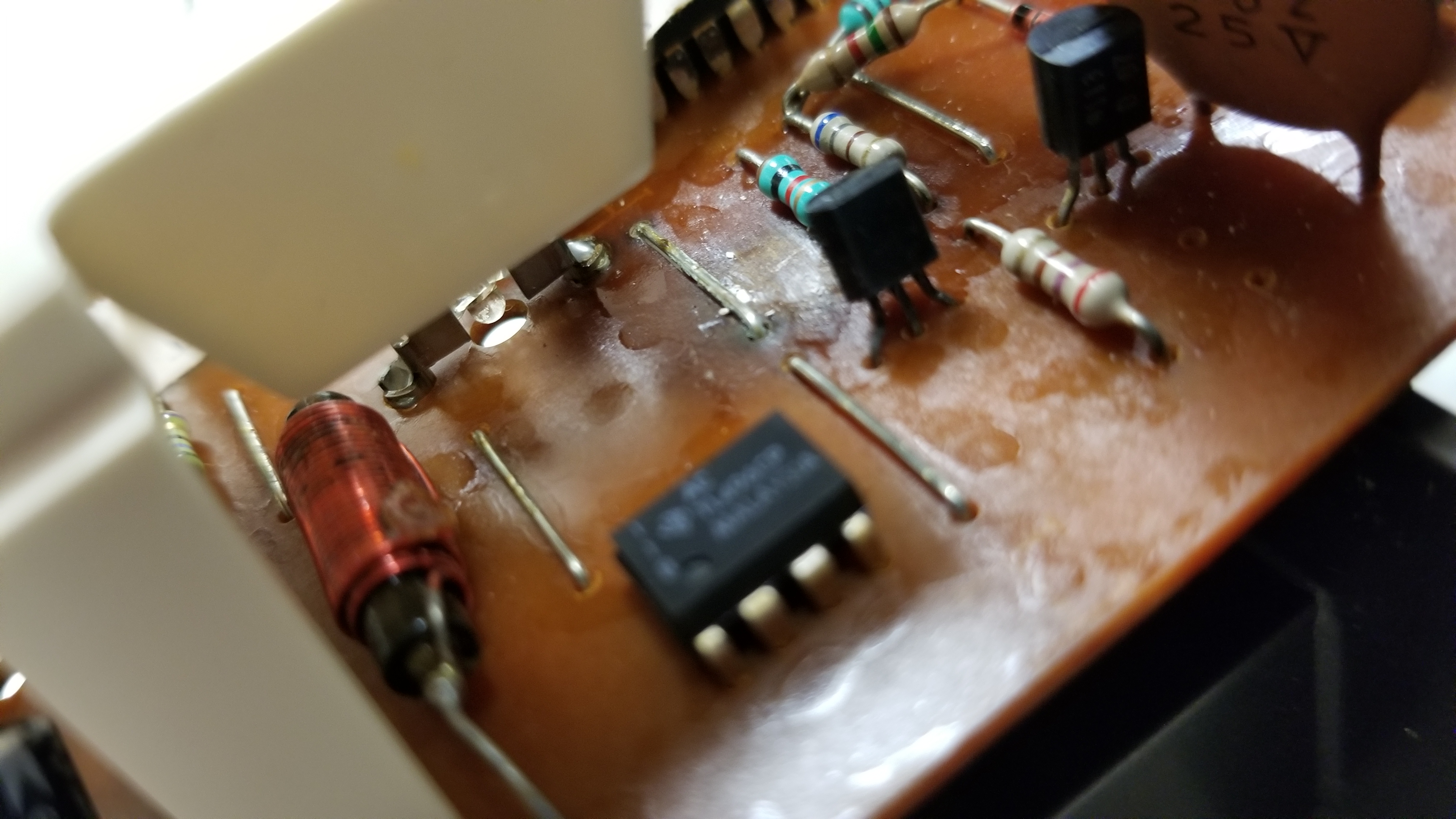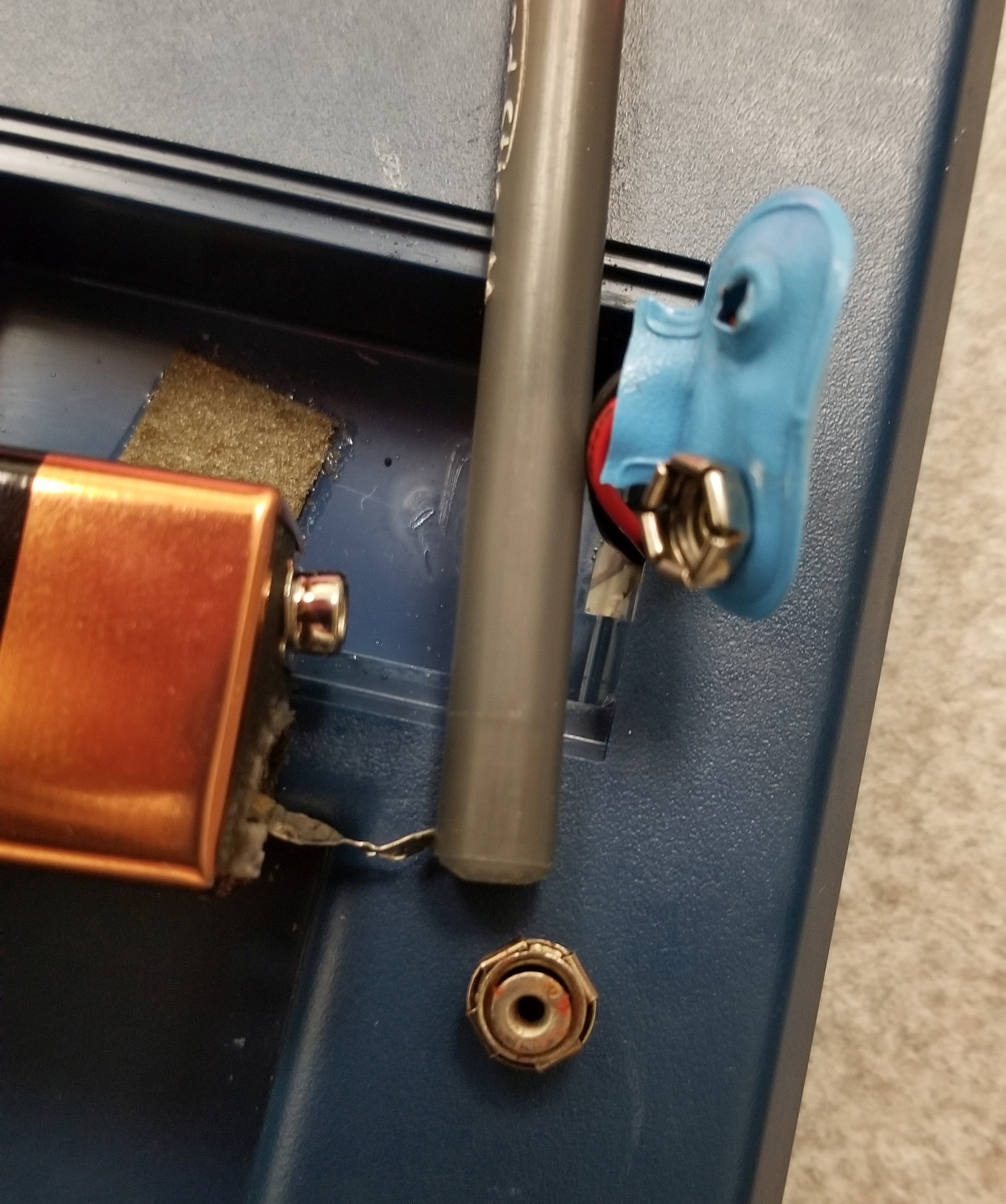Tag Archives: Lost Treasure
Cleaning battery terminals the easy and mostly-but-not-completely safe way
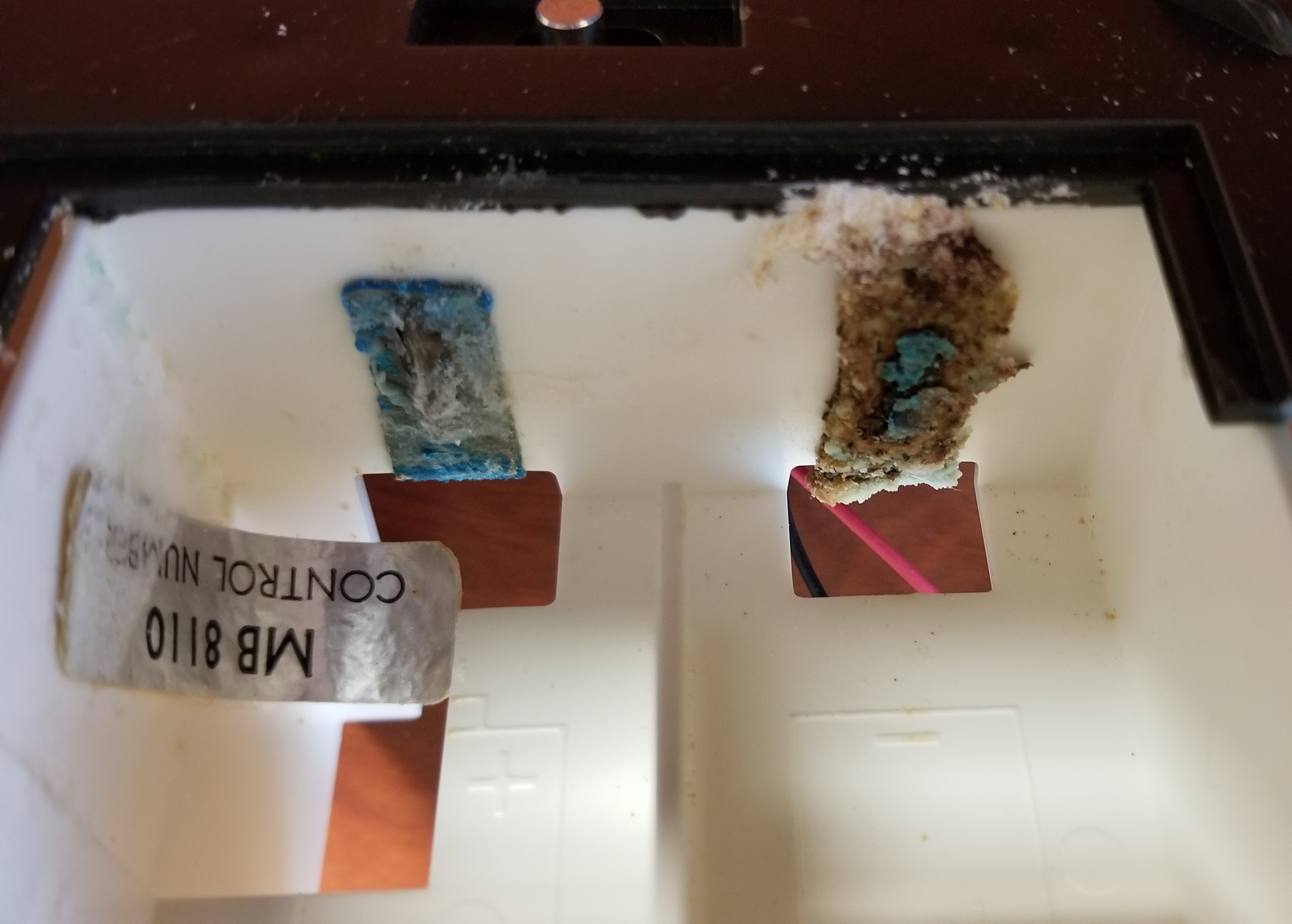
In my Human-Computer Interaction class, one of the in-class exercises students complete is a usability evaluation that requires them to evaluate a device randomly selected from a list of devices that I bring to class. The devices are nothing overwhelming: they include a numbered Rubik’s Cube, a water ring game, a backscratcher, a ping pong-ball gun to name but a few, and I have included a picture below of a select yet completely random few. In choosing devices for this exercise, which I am always hunting for in places like thrift stores, flea markets, swap meets, discount aisles, etc. (my rule is that I never pay more than $5.00 for an item I intend to use for this class exercise), I have to ensure they possess sufficient functionality to encourage a successful analysis yet are not overly complex.
Because of where I find many of these items, they are occasionally in need of some repair, or at least a vigorous cleaning. For the electronic devices, however, the problem can be more serious with the presence of corrosion from leaking or damaged batteries. If you read the manual for any electronic device, they always contain a section strongly advising that you remove the batteries if you intend to store the item for any length of time, yet few of us ever do, which references both reading the manual and removing the batteries. Because of that, corrosion is an issue I am faced with regularly.
Recently, I acquired an LCD billiards game, which can be seen in the above image, that had aggressive corrosion not only on the terminals but on a solder joint and the plastic casing that sat above them as well. I knew they would have to be cleaned, and it reminded me that in the game collection I donated last year, there was horrendous corrosion on the terminals of the electronic castle from a Dark Tower board game and the handheld electronic component from a Lost Treasure board game. I am not proud of the fact that I left batteries in both those devices. Not only do I know that dead batteries will leak sooner or later, I also know it will happen much faster if left in a battery compartment where they are connected and continuously discharge, which is known known as a parasitic or vampire leak. That builds up hydrogen gas that will, thanks to the pressure, eventually cause a leak. I also know it will happen *much* faster when exposed to high heat. And these sat in a Las Vegas garage for ten years.
So for practical as well as penance reasons, I decided to tackle the corrosion problem and make a post about it to spread the word. It’s not hard to clean, frankly, although whether the device works afterwards is another step. But we’ll get to that – let’s talk about cleaning corrosion.
First was the small LCD billiards game. Upon checking the batteries, the corrosion was obvious, and when I opened it up it was even more than I had anticipated.
You can see the terminal itself is corroded, which is expected, however the corrosion has also clung to the spot where the battery lead is soldered to the main board, and even stuck to the casing above; in fact, it’s worse there! As mentioned, however, it is easy to clean, using only distilled white vinegar which neutralizes the acid into nothing, and the vinegar doesn’t have to be terribly strong – I use a generic brand that’s only 98 cents and is diluted to 4% acidity (acidity will be listed on the label). This is also an opportune time to mention that this only works with alkaline batteries; car batteries are something entirely different and require the using of baking soda and water. You can also use vinegar to clean the batteries themselves but I most certainly do not recommend this; once the leak has started the batteries are of little use anyway. Recycle them and use fresh batteries in their place. No matter what you do, wear gloves and eye protection – this is battery acid we’re talking about here.
I submerged the corner of the device in a small bowl of vinegar, and after a few minutes of aggressive fizzing and hissing, it was all clean. It’s wonderful how well vinegar works for this. You don’t have to do anything; no scrubbing, no washing, no cursing, the vinegar does all of the work, although it will stink afterwards. I recommend the previously corroded components get a rinse with water afterwards but that is not always possible, a gentle scrub with an old toothbrush to remove the odd bits if necessary (although it usually isn’t), let the components dry, and you’re good. The results of the cleaning are below, and the thing now works perfectly.
When I say the vinegar does all the work, I am not kidding.
Next up was Dark Tower, and this one was more difficult and less successful, although the problem isn’t the batteries. As you can see in the following images, the corrosion was extensive. The Electronic Component is a large plastic tower with a rotating segment that lights up, and getting to the corroded battery compartment meant disassembling the tower. Once done, the extend of the corrosion became evident.
Again with the vinegar! I submerged the whole thing in a bowl filled with vinegar, and after about ten minutes came back to find it all clean.
As you can see, there is still oxidation on them, and that will require a stronger approach with a bottle brush and hydrogen peroxide. In fact, the central unit still doesn’t work, and I can’t be sure if it’s because of the remaining cleaning that needs to be done or because of what appears to be a burn on the main board, which may also simply need a cleaning; there’s no component at the location to blow out. I will clean it all up and update with the results. It’s an impressive piece, and a magnificent, non-replaceable game, so I am intent on getting it up and running again.
Lastly was the corrosion in the electronic component of the Lost Treasure board game. This one was more difficult because it was a 9-volt battery terminal that had corroded, and a previous attempt to remove the battery had detached the terminal from the battery itself, which can be dangerous. I cut the connector and soaked the thing in vinegar, however while it was sparkling clean after that, it also left the positive terminal from the battery stuck in the adapter and no amount of finagling with an eyeglass screwdriver and needle-nose pliers was getting it out. Eventually the adapter gave way, detached, and that was that. Fortunately, those are easy to replace and I’ll wire one up when the ones I ordered come in.
I can’t fault the person who tried to remove the battery as I don’t recommend dipping the battery in vinegar to clean it, but it was cemented in place by the corrosion. Pulling out the connecting wire like that isn’t a very desirable result, but in this case I can understand why it happened. Incidentally, you know what 9-volt batteries have inside them? Little batteries!
So vinegar. Never mind about it’s uses for cleaning or washing hair or killing bugs or neutralizing pet stains or clearing your skin or…just look here. When it comes to neutralizing battery acid it’s a miracle worker. Rinsing with water afterwards and allowing to fully dry is important, as are gloves and eye protection, but if you have corrosion, you’ll find that the vinegar soak is usually enough to get any device working again.

